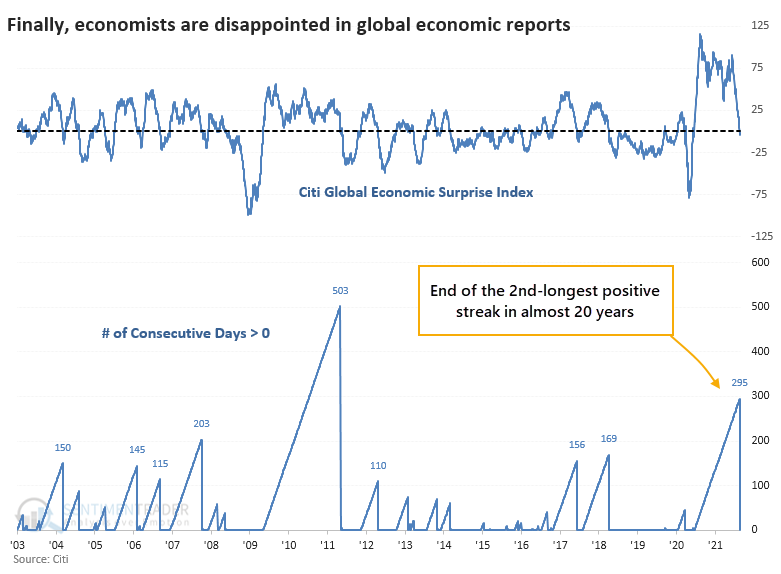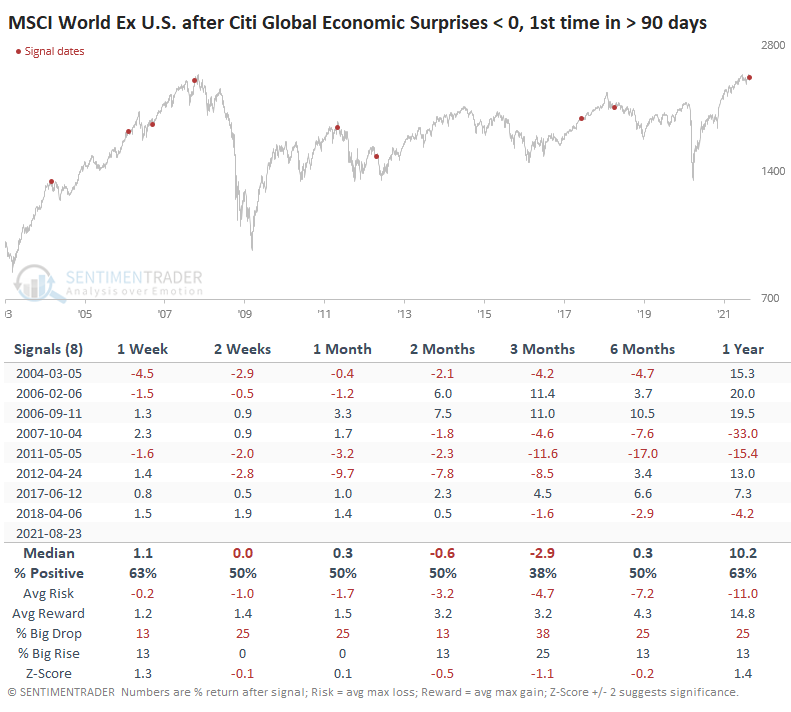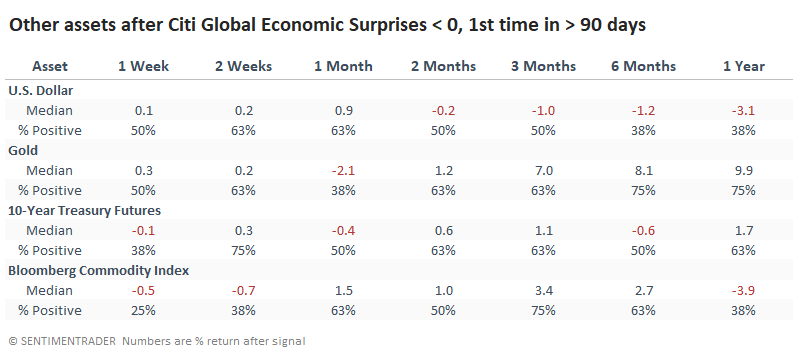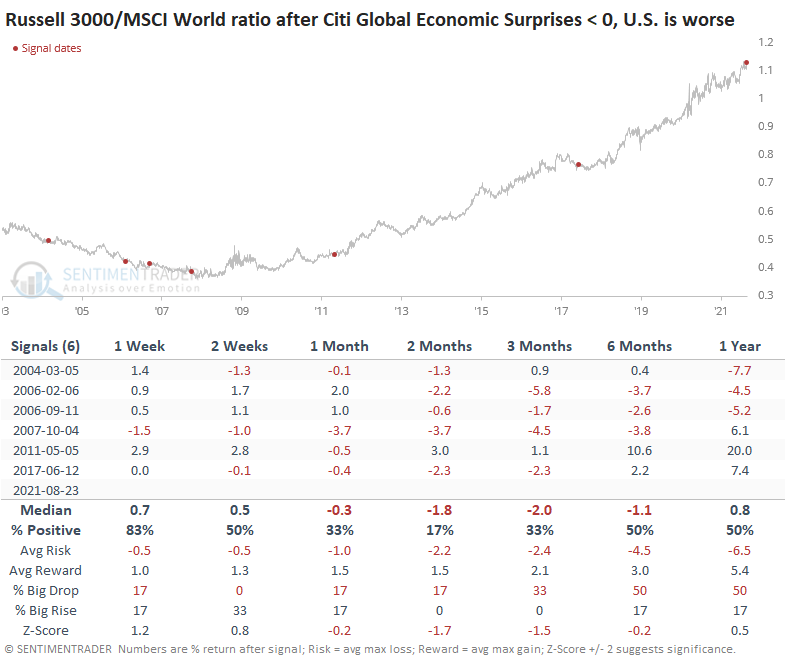Economic Surprises Turn Negative, Globally

In May, economic surprises in the U.S. turned negative for the first time in almost a year. They rebounded briefly, then surprises turned even more negative as economists didn't lower their forecasts enough.
Worldwide, however, economic reports had still been coming in better than economists' forecasts...until last week. For the first time in over a year, Citi's Global Economic Surprise Index turned negative.

Last week's reading ended the 2nd-longest streak in positive territory in nearly 20 years. The only streak that exceeded the current one, or even came close, was the one following the recovery from the Great Financial Crisis.
'MEH' FOR MARKETS
The economy does not equal the market, especially when we're dealing with stocks. But for the MSCI World Index (excluding the U.S.), forward returns were poor after the ends of positive economic surprises, especially over the next 3 months.

Among other assets, there wasn't a very consistent message. The U.S. dollar did okay shorter-term, then showed losses in the months ahead. Gold and commodities were essentially the opposite, but it wasn't perfect. Treasuries meandered above and below the zero line.

THE U.S. IS LAGGING THE WORLD
Even though the Citi Global Economic Surprise Index just turned negative, the one focused on the U.S. is nearly -50. If we filter the table above to only include those signals when U.S. surprises were lagging the world, then the ratio of the Russell 3000 to the MSCI World Index tended to see losses.

The ratio between the two indexes, the U.S. versus the world, showed a negative bias at some point between 1-2 months later every time. Granted, there isn't much history, so the sample size is tiny.
For those allocating across geographies, Dean has repeatedly pointed out how almost everything has fallen behind the U.S., especially the Asia Pacific region. And when so many of those markets are falling behind, they have a strong tendency to continue to. The broader MSCI World Index is lagging U.S. stocks, too, but the recent bout of disappointing economic reports shouldn't be a reason to expect that to continue, given that they've been even worse here in the States.

